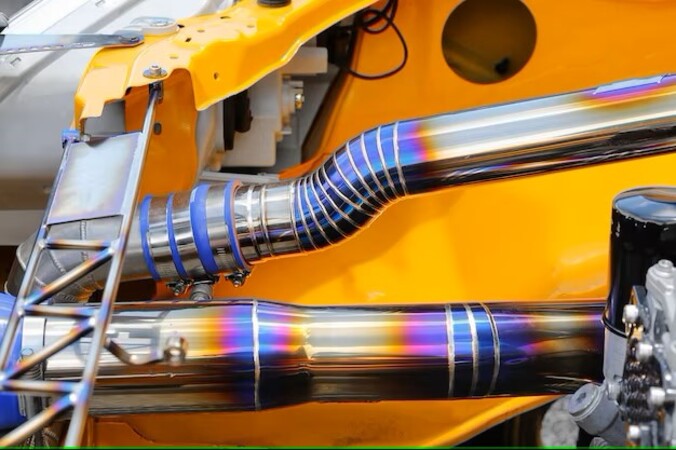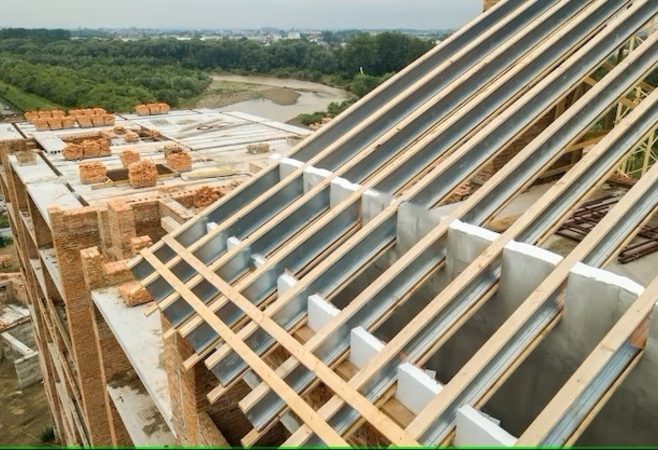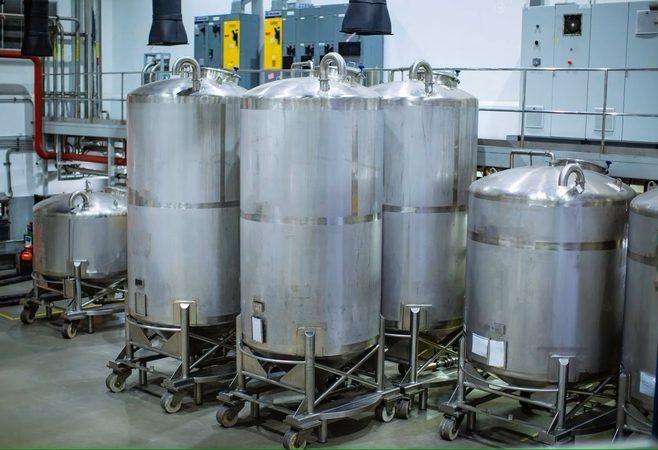
Stainless steel, renowned for its corrosion resistance, plays a vital role in construction projects. However, even the best stainless steel fabricators in UAE, such as Mefab, must address the issue of corrosion in stainless steel welds. In this blog, we delve into the reasons behind corrosion and explore how Mefab, the leading stainless steel fabricator in Dubai, effectively mitigates these challenges to provide top-quality stainless steel products.
What is Corrosion?
Here are two examples of corrosion. We’ve all seen dark patches on stainless steel flatware after a dishwasher cycle, but a more severe example is heavily corroded pipework after exposure to seawater. It’s all due to the presence of salt, and most stainless steels aren’t resistant to chlorine-containing salts. This effect can be mitigated by selecting steels that are resistant to saltwater corrosion. However, practically all stainless steel can experience a loss in corrosion resistance as a result of and during welding.
What are the 6 types of corrosion seen in stainless steel weld?
Understanding stainless steel corrosion mechanisms helps us understand why stainless steel rusts. Corrosion mechanisms in stainless steel are roughly classified into six types. They are as follows:
Pitting Corrosion: This is a type of corrosion that occurs in stainless steel when it is exposed to chloride-containing conditions.
Crevice Corrosion: This is another type of localized corrosion that occurs when oxygen levels in a crevice are exceedingly low. Unless the stainless steel is in a stagnant solution where chlorides might collect, this sort of corrosion is not a major issue.
Bimetallic corrosion: It occurs when dissimilar metals in a shared electrolyte come into contact with one another. This is also known as galvanic corrosion. The most prevalent occurrence is rain-corroding stainless steel.
Stress Corrosion Cracking: Stress corrosion cracking is caused by tensile stresses combined with certain environmental conditions.
General Corrosion: When the pH of stainless steel is less than one, general corrosion occurs.
Sensitization: Preserving Corrosion Resistance
Corrosion in stainless steel welds can arise from sensitization, a process that depletes the chromium-rich layer near the weld due to heat exposure during fabrication. Mefab’s team of experts understands the significance of preventing sensitization and employs precise welding techniques to minimize heat-affected zones. By skillfully managing the welding process, Mefab ensures the preservation of the material’s corrosion resistance properties, making them the preferred choice for stainless steel fabrication projects in Dubai.
Controlling Contamination:
Contamination is another factor that can compromise the corrosion resistance of stainless steel welds. As a reliable stainless steel fabricator in UAE, Mefab places utmost importance on maintaining cleanliness throughout the fabrication process. Their advanced facilities and strict quality control procedures minimize the risk of contamination from foreign materials. By adhering to meticulous cleaning protocols and using clean welding consumables, Mefab eliminates potential corrosion initiation sites, ensuring durable and corrosion-resistant stainless steel products.
Welding Excellence: Mitigating Weak Points:
Proper welding techniques are vital in preventing corrosion in stainless steel welds. Mefab’s team of skilled welders possesses extensive expertise and experience, enabling them to execute flawless welds. By carefully controlling the welding process, Mefab avoids issues such as incomplete fusion, porosity, and undesirable phase formation, which can weaken the welds and make them susceptible to corrosion. Mefab’s commitment to welding excellence ensures the structural integrity and long-lasting performance of its stainless steel products.
Superior Quality Control: Meeting and Exceeding Standards:
At Mefab, quality control is ingrained in every step of the stainless steel fabrication process. As a leading stainless steel manufacturer in Dubai, Mefab sources high-grade materials from trusted suppliers, guaranteeing the quality and corrosion resistance of the final products. Additionally, stringent quality control measures are implemented to ensure that every weld meets or exceeds industry standards. Mefab’s dedication to delivering superior products and its commitment to customer satisfaction make them the preferred choice for stainless steel fabrication projects in UAE.
After-weld operations
Accepting discolouration and removing it post-welding has become routine practice in some applications, but this can be highly expensive. It takes time and is difficult to achieve any degree of success where access is limited. Some approaches necessitate the use of specialized equipment. The cost of post-weld procedures is frequently ignored and not included in the welding process. Because they are mostly applied by hand, their effectiveness can vary greatly. They are viewed as a simple choice, but their costs can rapidly exceed those of welding.
Corrosion in stainless steel welds can be effectively managed through proper fabrication techniques and quality control measures. Mefab, as the best stainless steel manufactures in UAE, excels in all aspects, from preventing sensitization and controlling contamination to employing superior welding techniques and maintaining rigorous quality control standards. Trusting Mefab for your stainless steel fabrication needs in Dubai ensures the highest quality, durability, and corrosion resistance for your construction projects.


